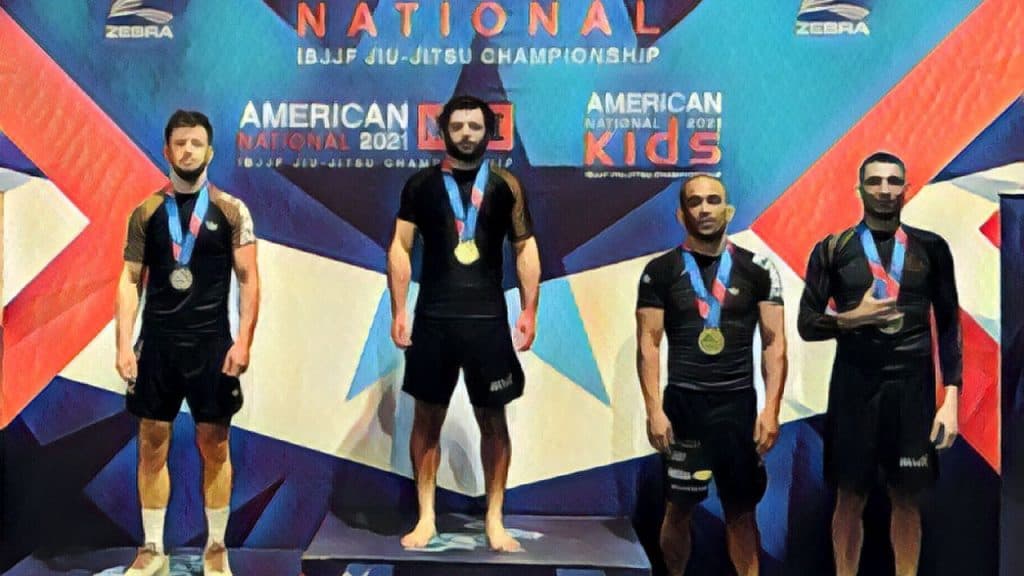
I talk to Robert Degle. A blackbelt in BJJ, was recently banned from competing in the black belt division by the IBJJF due to not having enough time registered as a brown belt before being promoted to black belt. Yet we discuss why he thinks the IBJJF has an overall net positive influence on the sport. From the prestige of its competition circuit to the rules and points system that he believes forces a general well-rounded jiu-jitsu game regardless of gi or no-gi competitions. An interesting take on how an external organisation’s influence over a sport can affect individual competitors’ actions.
Listen to Robert Degle
Listen to the episode:
YouTube
Topics
Rule sets as an educational tool
Degle argues that rule sets drive athlete behaviour far more than coaching speeches. The IBJJF’s points and leg-lock restrictions oblige beginners to master sweeps, guard passing, and back takes before chasing quick submissions. In his view, this “constraint-led” environment produces more rounded grapplers, and the benefits carry straight into ADCC or any other points contest.
The temptation and limits of leg locks
Leg locks offer a short, low-risk route to victory, making them “seductive.” Degle warns that early over-reliance can stunt long-term development; leg locks should sit inside a positional framework, not replace it. He notes how even elite leg-lockers like Gordon Ryan eventually had to prioritise passing to stay dominant.
Systems and culture over individuals
Borrowing from sociology, Degle claims that durable systems – consistent tournaments, shared goals, daily positional rounds – create champions more reliably than isolated talent. Brazil’s long IBJJF culture is his prime example, while purely submission-only gyms often lack the same positional depth.
Super-fight entertainment versus tournament merit
Professional super-fights may pay better, but Degle sees them as the “pro-wrestling branch” of grappling: fun yet inconsistent, judged on nebulous “excitement” criteria and offering few matches per year. By contrast, the IBJJF circuit lets athletes compete weekly, improve through volume and rely on clear, measurable merit.
Wrestling and the B-Team training environment
Training at B-Team in Austin has pushed Degle to wrestle hard and avoid pulling guard, mirroring ADCC scoring priorities. He highlights how that culture emerged only because the team collectively wants to win under those rules – proof, he says, that goals dictate daily practice.
Bureaucracy, the ban and renewed goals
Degle recounts being barred from black-belt IBJJF events for not holding brown-belt registration long enough, despite already holding black-belt skills. Rather than abandon the federation, he used the downtime to tour, teach and prepare; his near-term goals are to win Euros, Pans, Worlds and ADCC trials once eligible.
Robert Degle Resources
Quotes
“Leg locks are very valuable, but if you view them as the end-all you are falling short.” – Robert Degle
“Jiu-jitsu is not a spectator sport – strikes sell to the masses, grappling sells to grapplers.” – Robert Degle
“Systems are ultimately more important than individuals for producing great athletes.” – Robert Degle
Links
- Robert Degle Linktree
- Robert Degle Instructionals
- Robert Degle BJJ Heroes
- Robert Degle Instagram
- Robert Degle on the Purpose of Pragmatism, philosophy, Jiu-Jitsu & John Danaher
- Robert Degle On Leg Locks In MMA
- Wittgenstein: A Very Short Introduction
- Marcelo Garcia – Advanced Brazilian Jiu-Jitsu Techniques
If you enjoyed this episode of The Sonny Brown Breakdown Podcast, then make sure to rate, subscribe and share the podcast.

